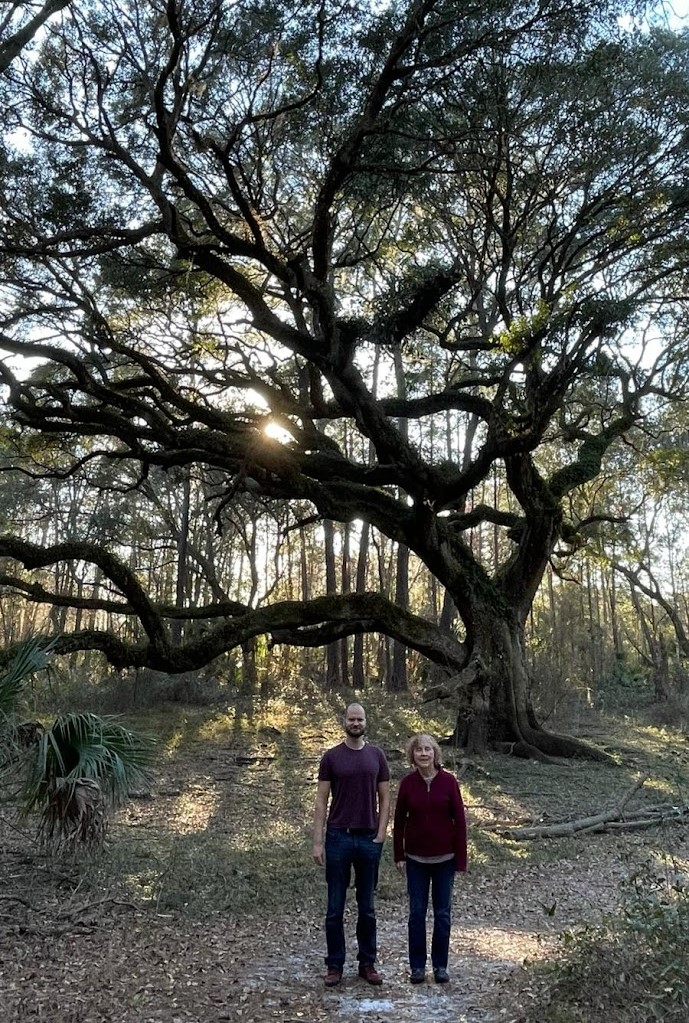Last week we had Carol Cleland visiting Foundation for Applied Molecular Evolution in Florida. I used that opportunity to continue our ongoing discussion about utility of the term life in astrobiology.
I believe that there is no practical value in generating one unified definition of life or theory of life when searching for alien life in the universe. Although the concepts of life vary widely from person to person, its variability has a negligible effect on the astrobiology. Researchers need to precisely describe what they are looking for and what they have found. Labeling something as life does not contribute much to the science; it is only useful because it sounds cool. Jan’s advice to astrobiologists is to focus on anomalies, describe them to the public, and leave it up to philosophers to debate whether the discovered phenomenon constitutes life or not. (Note that philosophers after a century of debate still do not agree on whether viruses are life or not.)
On the other hand, Carol Cleland argues that a theory of life is valuable for the search for life in the universe, but we will likely not be able to formulate a theory of life until we have identified multiple examples of life. Carol’s advice to astrobiologists is to continue looking for anomalies until a sufficient number of examples of alien life forms are found to develop a comprehensive theory of life that will be very useful for astrobiology. Carol was in fact the first to publish the idea to look for (potentially biological) anomalies when searching for life in her 2011 paper Life without definitions.
I will continue to label things as life in the same way I label tomatoes as vegetables. Even though I know that tomatoes are fruits, it is more practical to refer to them as vegetables because that’s how everyone else does. Similarly, even though I recognize that labeling alien phenomena as life is relatively unhelpful for the science of astrobiology, I will continue to use this term as a convenient shorthand.
In summary, we spent a couple of days arguing about this. After all, engaging in heated scientific and philosophical arguments is enjoyable, especially when done with people who sincerely hold diverse views.
We parted as good friends. I still maintain that the term life is rather useless for astrobiology, while Carol continues to emphasize its importance in the field.
For more details about Jan’s point of view see: Null hypothesis: the term ‘life’ is not needed in biology, Why the term ‘life’ is useless in astrobiology, and Are Venusians ‘life’?
For more details and more balanced description of Carol’s point of view see: Why astrobiologists should NOT get rid of the term ‘life’, Why the term ‘life’ is important to research in astrobiology, and Cleland & Grinspoon response to Benner: Do synthetic microbes provide another example of life?




Life: you will know it when you see it. I would not bother to define life, as we do not have to define life to search for it.
What we look for is anomalies, something that does not belong. Anomalies are planetary phenomena that do not fit with our current understanding of (rocky) planet environment. Anomalies can be anything, from unexpected trace gases in the atmosphere of a planet to an unusual distribution of organic chemicals in the collected samples (molecules of only one type, like L- vs D-amino acids, collection of fatty acids that looks like it is carefully selected etc.). Life also requires complex chemistry, that is unavoidable. One cannot have life built only from hydrocarbons. It needs complex, diverse organic molecules that are not only C and H atoms. As a result of the requirement of “chemical complexity” (which we also do not have to really define, we will know when we see it!) any organic molecule that “looks complex” has a likelihood of being biological. If we detect a native taxol-like molecule on Mars we will have an example of anomalous complex organic molecule that cannot possibly be the product of Martian planetary processes (as we currently understand them).
Life is a planetary phenomenon and as such it will change the planet’s chemical environment in a way that the planet itself will not be able to mimic. This change that life introduces can be small (and difficult to detect) if life is only locally present and does not conquer the entire planet (such situation can apply to Mars for example, or my favorite planet Venus) but it will be present and detectable with a dedicated in-situ instrumentation.
It is also likely that the “life detection event” will be inherently statistical in nature and likely not a 0-1 “silver bullet shot”. Over the years we will collect data on as many anomalies as possible, verify the robustness of their detection and then conclude that such various and diverse (!) chemical anomalies occur on planetary bodies (planets and moons in our Solar System, or exoplanets) with X and Y frequency. From that we will be able to conclude something on the statistics of anomalous detections in the galaxy (e.g. do they tend to occur on “typical” rocky planets or not) and maybe even on the frequency of life itself.
Janusz, thanks for the comment! I broadly agree with what you’ve said, although I would add “not necessarily” to many of your statements, pointing out the edge cases…
To have specific answers from you:
1) Would you agree with a statement that to search for “life” we do not need to have a definition OR theory of life?
2) Do we, the astrobiologists, need to have identical concept of “life” before we search for it?
3) Do you think that Carol Cleland can help your search for life? (see The Quest for a Universal Theory of Life and The Nature of Life: Classical and Contemporary Perspectives from Philosophy and Science)
Hi Jan, interesting points.
Regarding point 1):
In my opinion we do not need to have the definition of life to search for life. Would formulating a “theory of life” help the endeavor of life searching in the cosmos, or improve it? I do not know. Strictly speaking the “Theory of life” is something different than The Definition of Life. Can we actually formulate a “Theory of Life” without the definition of life included in it? I do not know, but I would love to hear what Carol Cleland thinks about this.
Regarding point 2):
Definitely not! Anyway, if we look for “anomalies” then it is irrelevant how we define life subjectively or how we subjectively conceptualize it.
Regarding point 3):
Yes! It is Carol Cleland who postulates to look for anomalies after all, which is a spot on approach in my opinion.